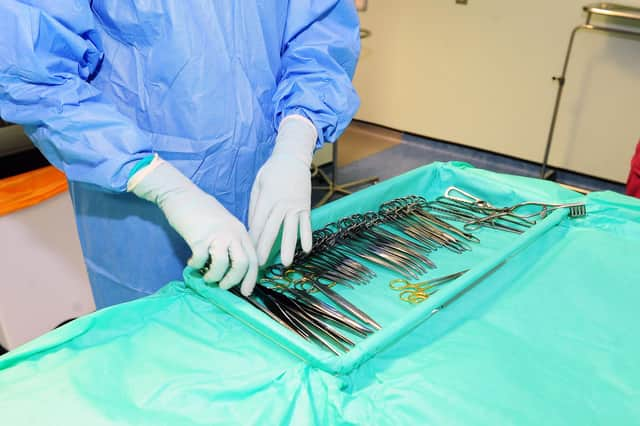NHS waiting lists are rising dramatically. Here's what we need to do – Marie Hayes


After a year-and-a-half of unprecedented pressure on our health services, like much of society, the focus is shifting to how we deal with the backlog of needs.
The number of Scots waiting a year or more for planned hospital treatment almost doubled in just three months this year – with the latest figures for the end of March showing 28,203 patients having spent 52 weeks or more on an NHS list.
Advertisement
Hide AdAdvertisement
Hide AdStatistics are easy to read. But we can’t forget the people – the patients themselves, their families and their carers – who sit behind the stats. Living, worrying, and waiting for the support they need.
It’s something the British Red Cross sees through our work supporting people with health and care needs, including those falling through the cracks in the system. The people we help have a variety of social needs that, if spotted early enough and met, can prevent health problems worsening.
But as the NHS starts to look beyond the pandemic, there is a growing concern that the waiting list will continue to grow.
On top of the official waiting list stats, there are people who’ve silently gone without the care and treatment they need throughout the pandemic.
Some of these people have been reluctant to seek help for fear of burdening an already stretched system, others have been too afraid of contracting the virus were they to come forward.
Those who are frail have sometimes lacked the support they once relied on to make it to crucial appointments. People have missed out on things like routine screening appointments and might have conditions they don’t yet know about. This is what we call the hidden waiting list.
Healthcare in Scotland is at a crucial crossroads, not just for patients but for our overstretched doctors and nurses too who have given so much these past 18 months.
We have seen during the pandemic just how much poverty and ethnicity drive inequalities in healthcare. Areas with the poorest health – often the areas with higher levels of deprivation – were also often more vulnerable to Covid-19.
Advertisement
Hide AdAdvertisement
Hide AdThese sorts of pressures have tended to result in bigger backlogs, meaning not only have poorer and more socially disadvantaged people been hit hardest by the pandemic, but they now might be at greater risk of waiting longer for the treatment they need too.
There is no getting away from the reality that, in some way shape or form, waiting lists will continue to be a problem. While things like increased funding and new digital solutions will be necessary, waiting lists cannot be magicked away.
But people don’t need to suffer as much as result. Part of the solution must be about supporting people, practically and emotionally, while they wait. It's about ‘active waiting’, or ‘waiting well’.
That is why services such as the British Red Cross’s What Matters are so important. Piloted in Midlothian, it helps people over-65 to remain as independent as possible by, for example, delivering food parcels, arranging wheelie bins to be collected, installating bed and shower rails, and importantly connecting them to their community, prioritising what is important to them.
This is an important part to maintaining well-being. Taking this approach doesn't just reduce feelings of being anxious and alone but also shows how engaging proactively makes a difference.
Clear and regular communication, provided in a way that feels personal and supportive, can also go a long way. It can include contacting patients at regular intervals to enquire about their well-being to reminders and updates of upcoming appointments. And patients, their family and their carers should be given information and advice to cope better at home – tips on how to self-manage their condition, how to exercise safely, and how to connect to community support groups so they feel less alone.
No one should underestimate how much these seemingly small actions can help make someone feel listened to and give them more control. And at the British Red Cross, we know that sense of control really matters.
Often the waiting lists’ picture is painted as an impossible statistical challenge. Yet, it has very real human consequences. But seemingly simple, non-clinical support can make a world of difference to our systems and the people waiting.
Advertisement
Hide AdAdvertisement
Hide AdMarie Hayes is Scotland director for independent living and crisis at the British Red Cross
A message from the Editor:
Thank you for reading this article. We're more reliant on your support than ever as the shift in consumer habits brought about by coronavirus impacts our advertisers.
If you haven't already, please consider supporting our trusted, fact-checked journalism by taking out a digital subscription.
Comments
Want to join the conversation? Please or to comment on this article.
